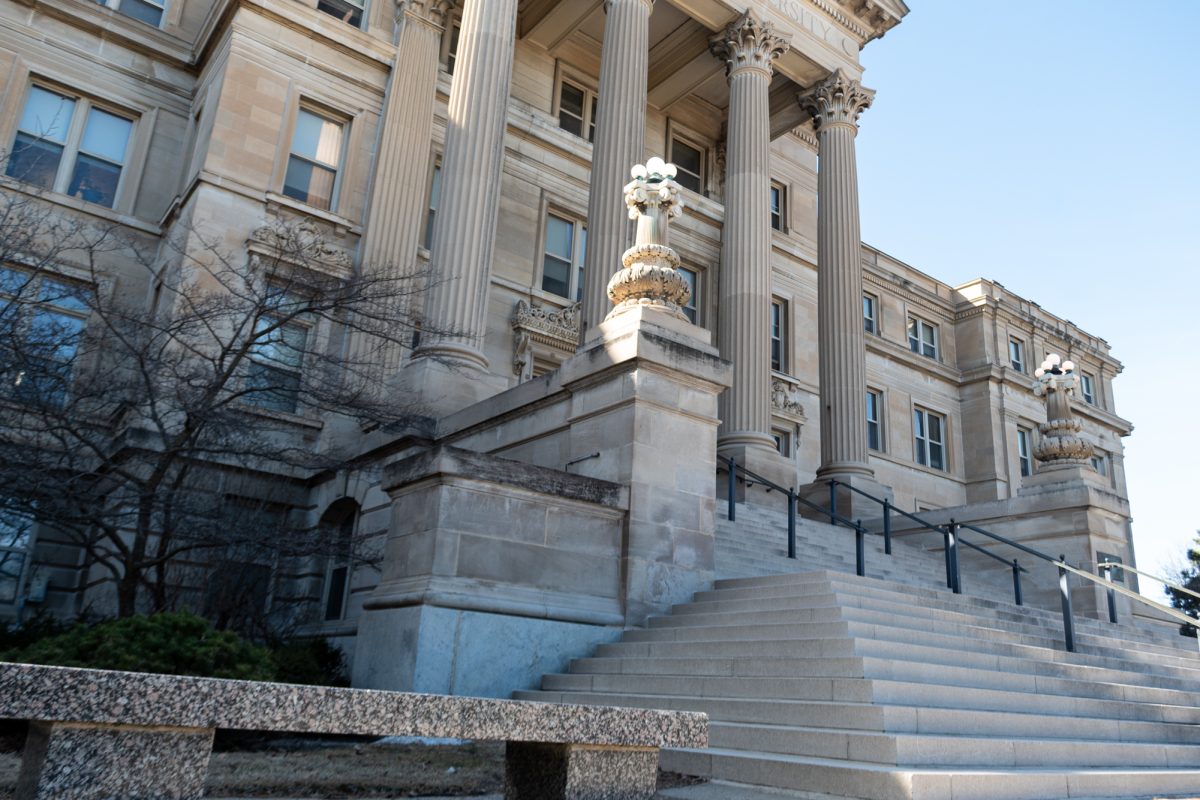McLaughlin: Tuition freeze leaves many out on the fringe
May 1, 2014
On April 28 Iowa’s House and Senate signed an education budget report which requested for the four percent increase in state funds to freeze tuition prices for Iowa’s public universities.
The tuition freeze however is reserved only for resident undergraduate students. This will be the second year in a row that tuition has remained the same for in state undergraduates.
But how much does it really help students?
The freeze is selective of who in the university populous receive benefits. By allowing only Iowa residents to experience the legislative halt to increasing college costs. Other students, graduate and non-resident alike may feel excluded.
What does that tell the other students? That they don’t matter as much as the locals?
It’s not just about hurt feelings, either. It’s no secret that out of state tuition is much higher than in state, non-resident students could need some help easing the financial burden of tuition as well.
One of the purposes of the freeze is to entice more student enrollment by providing an easier to predict financial situation, but instead of trying to appeal to all fronts legislators chose instead to reward a group that already has the lowest price of admission.
Even though undergraduates and resident students are a large majority of our population, 29% of Iowa State students are paying the more expensive out of state tuition, which adds up to quite a bit of revenue.
That said, freezing increases on college tuition may not exactly be beneficial to the universities either. Studies done by Paskill Stapleton & Lord which determine that guaranteeing a set tuition over four years didn’t impact numbers regarding enrollment and retention rate. Although pricing definitely plays a factor into the decision making process. The firm reported that only some people included tuition freeze as the deciding factor when determining what school to go to.
Even with the tuition freeze, the benefits given to resident undergraduates is miniscule compared to the cost of tuition added on to the total ticket such as room, board and books. Saving a couple hundred dollars is nice, but it only makes a small dent in the total cost, especially when the tuition freeze isn’t guaranteed to continue in the future.
Keep in mind that students aren’t paying the list price either. There are other factors like federal grants and tax deductions that takes the edge off of college tuition.
Then there has to be the consideration of how the state is going to generate the revenue to keep pace with the 4 percent increase to ensure that students save a couple hundred dollars. The state will have to rely on taxpayers to pick up the slack of the $986 million education budget which covers statewide education from K-12 to college. Especially for the University of Northern Iowa which needs an additional $2.6 million to maintain the tuition freeze with their high resident population.
Relying on state appropriations to keep tuition down isn’t a realistic goal. Tuition is going to keep increasing in prices as it has been the last few years, and it’s only to cost the state more funds to maintain the current status quo. As the price of tuition is supposed to jump, the budget has to grow at an equal rate to match it.
This year the Board of Regents budget reports that this year’s funds towards state universities will grow $12.1 million from last year’s budget, totaling $497.3 million. Iowa state is reserved $174 million in appropriations which is $4.4 million [2.6 percent] higher than last year’s budget. The report also notes that while resident students will experience a 0 percent increase in tuition, non residents undergraduate and graduate will experience a 2.35 percent increase and graduate students will experience 1.19 percent for resident graduates. Although the increase in budget as a whole isn’t strictly for the tuition freeze, portions of the increase undoubtedly are. That’s a sizable increase in overall budget which is coming out of the pockets of Iowa’s taxpayers.
Instead of using the funds from our budget to slow the increasing price of tuition, maybe the state should focus those same funds on improving the quality of education.
Improving our education would be a better bet in increasing enrollment rates and would be a benefit to all students not just the ones who were lucky enough to be in state.
Stopping tuition cost rises may be a small relief for the next school year, but in the long run it really won’t do much for the undergraduates of Iowa State.






